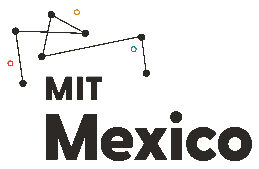How to channel student’s emotions towards significant learning experiences? Usually when dealing with passion and excitement, it is easy to channel these emotions towards motivation and action. However, how can we deal with negative emotions such as fear or anxiety for world events that even make us adults fearful for the future? Emotional intelligence techniques (which go from mediation to exercise and art) are a fundamental aspect of human life. Daniel Goleman argues that there are five main components for emotional intelligence: self-awareness, self-regulation, motivation, empathy and social skills. We need to train both ourselves and our students in these abilities. Because life is always challenging, it can be painful even, but we can train our minds to avoid suffering.
Regarding world events, it is definitely recommended to have tools of analysis and emotional intelligence due to the fact that students are directly exposed to disinformation through social media, especially in Tik Tok, Instagram and Twitter. That is why it is useful to recommend students some accounts on these platforms to be optionally followed by them with close supervision from their parents. So they follow El País, Yale, Harvard, Oxford, MIT, NASA, Reforma, Princeton and so on, instead of fake news sources. Furthermore, students can follow the specific schools of their interest (for example, the Kennedy School of Government at Harvard).
Our responsibility as teachers is to state the facts and emphasize the concepts that we’ve seen in class and avoid counterproductive speculation
On Thursday, February 24th Russia attacked Ukraine due to the fear that the latter would join the North Atlantic Treaty Organization (NATO). These last few days have probably been the most tense since the Cuban missile crisis. With the COVID-19 pandemic, anxiety levels are understandably over the roof.
It is highly unlikely the situation in Ukraine will evolve into a major international war. Our responsibility as teachers is to state the facts and emphasize the concepts that we’ve seen in class and avoid counterproductive speculation. We need to emphasize the deterrent factor of mutually assured destruction (MAD) between nuclear actors and the likelihood for the military actions to be contained into Ukraine, probably, as a proxy war (like in Vietnam or Korea). It is definitely impressive the united Western front in the face of this invasion: like Germany’s unprecedented military support, a complete shift in German foreign policy; Canada’s donations for the Ukrainian resistance; and, the unanimous support for unprecedented sanctions, like excluding Russia from the Society for Worldwide Interbank Financial Telecommunication (SWIFT), practically neutralizing all exports and imports from Russia. These measures have been taken before, against North Korea, however, Russia is a much larger market with far greater economic interconnections to the global economy.
Therefore, it’s true that the generalized increase of prices in oil, gas, transport and production will have an impact on the lives of our students (in many different degrees). The disruption of global supply chains will have consequences for everyone as a consumer. Nevertheless, it is important to remember that many of these things are huge economic matters that teenagers shouldn’t have to deal with. Adults are responsible for the economic downturns of life. How to give our students tools to analyze and understand their reality without putting on their shoulders pressures that are inappropriate for their age?
Analytical definitions argue that economics is defined as the science of decisions. The economical dilemma is precisely to decide how to use limited resources for unlimited needs and wants. Our era’s priority is precisely to raise awareness for our unsustainable ways of consumption and incentivize convenient sustainable ways of production.
Since we are all economic actors, to transmit some differentiated degree of responsibility is necessary. We are all consumers and to be aware that a possible recession is coming (with very different degrees of impact) does increase the possibility that we take sufficient action to downgrade its consequences in our life. Students should be advised to show restraint in their expenses. In some cases, it would also be possible to incentivize further research on finance, to understand these phenomena better.
I usually argue precisely in favor of remaining calm and not making unfounded alarmist and catastrophic statements. Usually, the post-1945 international order and the status quo since 1991 did guarantee some predictability of the global actors due to the fact the costs of repression and aggression remained higher than the benefits of these actions. However, this is definitely a step change in the foreign policy of Putin, who has moved from risk-averse to contained-confrontational.
We need to be extra clear with our students that our interpretations are limited. That speculation is not analysis and to be humble enough to be able to say “I don’t know” when facing uncertainty
Empirical evidence precisely tells us that reality is multifactorial and it doesn’t depend on one person’s actions (e.g. Putin or Biden). Furthermore, collective action of factual powers (multiple interests of many people) tend to choose certainty and calm over conflict. Especially due to the preferred predictability of financial markets in this globalized era.
In 2019, a student asked me in class if COVID was going to change the world and I answered “nothing is going to happen”, using (according to me) by International Relations training which precisely tells us to see the international reality in realistic and sober terms. Students were calm that day. Months later, I remember how one of them approached me and told me: “you told us this was not going to happen” and I promised myself that I would never make that mistake again. It’s an incredibly difficult thing to answer a student’s direct question on an ongoing situation without making unfounded assumptions or affirmations which ultimately end in mistaken interpretations of reality. Here, we need to learn our limits, without missing out on rich analysis opportunities for fear of making mistakes as well.
We need to be extra clear with our students that our interpretations are limited. That speculation is not analysis and to be humble enough to be able to say “I don’t know” when facing uncertainty, and deal with the fear everyone experiences in the face of such circumstances. It is important to make source analysis and recommend students a series of newspapers and journals to follow: CNN, Reuters, The New York Times, International Organization, Le Monde Diplomatique, El País, Foreign Affairs, Foreign Policy, Reforma, The Economist, El Financiero, Proceso everything in JSTOR etc.
The minute-by-minute digital coverage of this era makes us all take emotional and irrational decisions that are definitely premature. This shows how important it is to train ourselves and our students into remaining calm regardless of immediate news and information. Some Asian cultures even mention that sometimes the wisest thing to do is to listen and wait. The counter-argument is that sometimes you can’t just continue your class program as planned because world events are happening as we speak, and to lose that momentum might not only be pedagogically incorrect but also historically wrong. For example, turning the TV off in schools when 9/11 happened. What should a teacher do? Turn the TV on and watch live as these events unfold? I think that a controlled setting of current events it’s enriching. So I would keep the TV on in the first moments, however, I would turn the TV off if the images become traumatic (for example, when some of the victims of this attack jumped from the towers). However, when watching something live, you can’t pre-analyze it and edit it, hence, the counterproductive aspects of watching live events might be greater than the benefits for learning.
We need to be extremely responsible when addressing issues of this magnitude. Would it be best just to leave it at the current scenario without theorizing what could happen? Yes, otherwise it’s precisely speculation. Especially in this case, with issues this large, I’ve learned it’s better to wait until events unfold, and make the analysis a posteriori.
Here are some links to delve into the topic:
Be open, be honest and listen: how to talk to children about Ukraine
Talking to Kids About Ukraine: How Teachers Can Help Students









